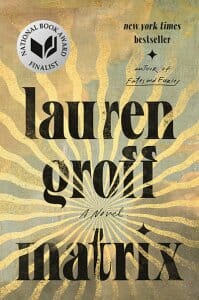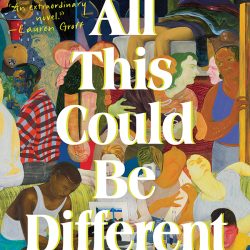When Nuns Fight Back
Matrix, by novelist Lauren Groff MFA’06, portrays an unlikely feminist utopia.

Groff dramatizes an abbey’s transformation from a moral prison of piety and poverty to a sanctuary nurtured by the nuns’ ingenuity. Eli Sinkus
Lauren Groff MFA’06’s 2015 novel Fates and Furies, a two-sided account of marriage, garnered prestigious recognition as a nominee for the National Book Award for Fiction and then-president Barack Obama’s favorite book of the year. Groff even made an appearance on Late Night with Seth Meyers. Five years later, amid the turmoil of 2020, she sought literary refuge in the unlikely feminist utopia of a 12th-century abbey.
In Matrix — which derives its title from the Latin word for “mother” — Groff brings vivacity to the dismal setting of an impoverished nunnery through a character offered similarly new life on the page. Marie de France was a 12th-century poet of whom little is known save for her suspected birthplace (France), where she spent her days (England), and her verse, the first written in Francien (a medieval precursor to French) by a woman. Her historical ambiguity provides Groff with a protagonist just slighted enough to merit redemption, and redeem her she does.
Upon arriving at the abbey after a shameful banishment from the French royal court, Marie reluctantly takes on the care of its nuns. Her ambition and rejection of patriarchal norms lead to the abbey’s transformation from a moral prison of piety and poverty to a sanctuary nurtured and protected by the ingenuity of the women it houses.
Matrix was a finalist for the 2021 National Book Award in Fiction.
Published in the Spring 2022 issue




Comments
No comments posted yet.